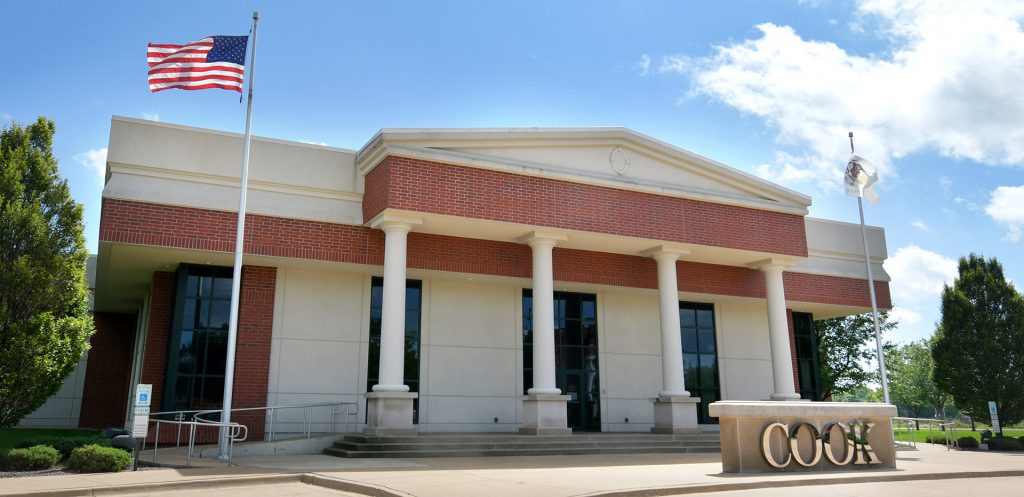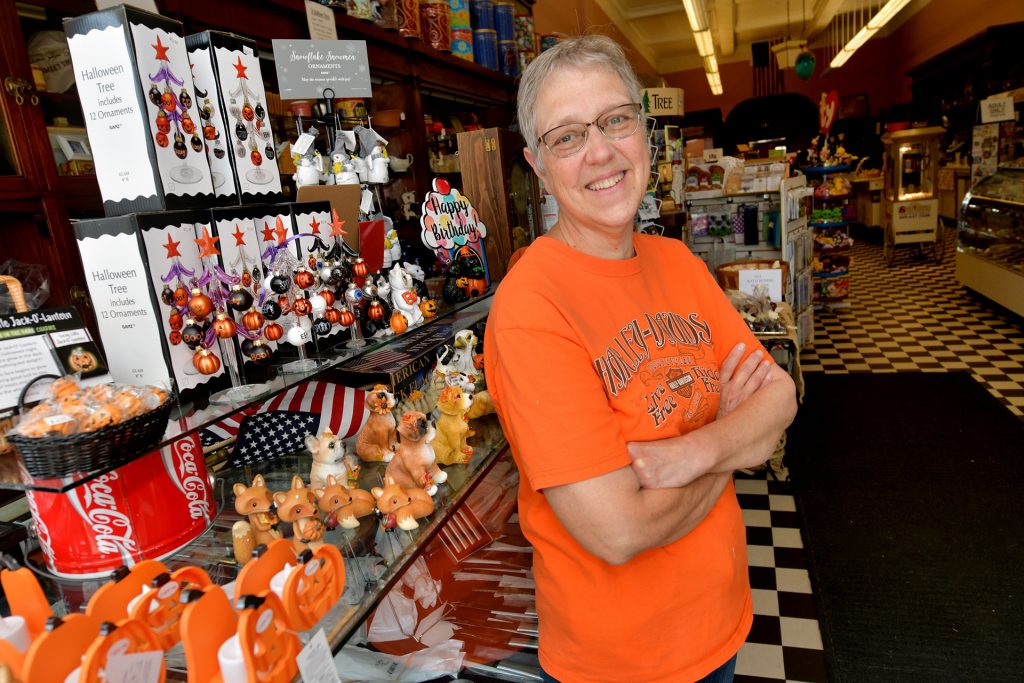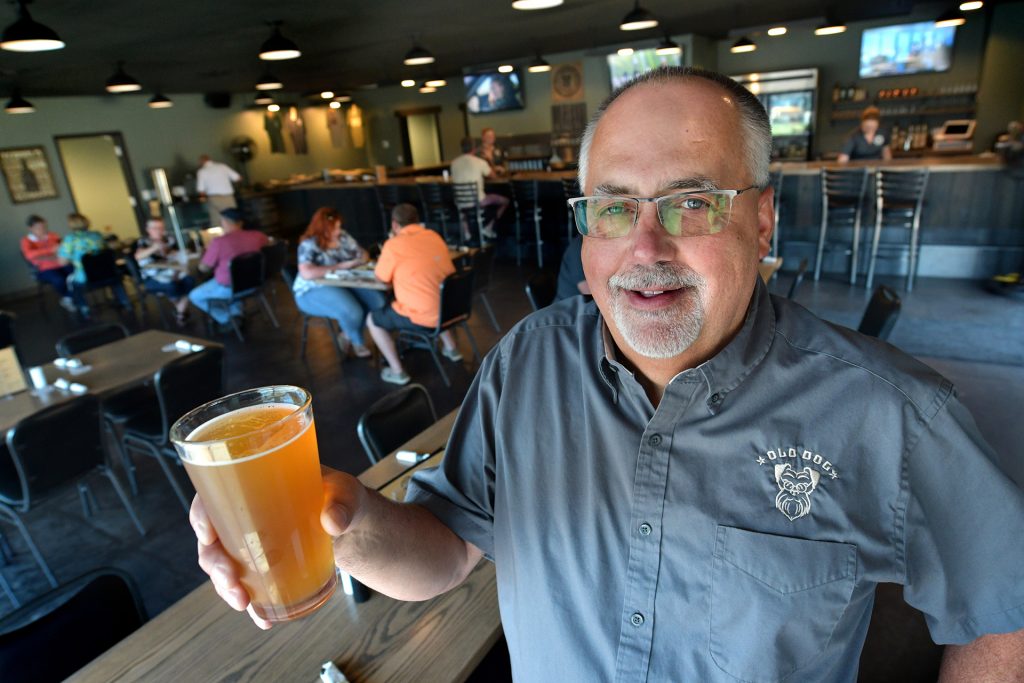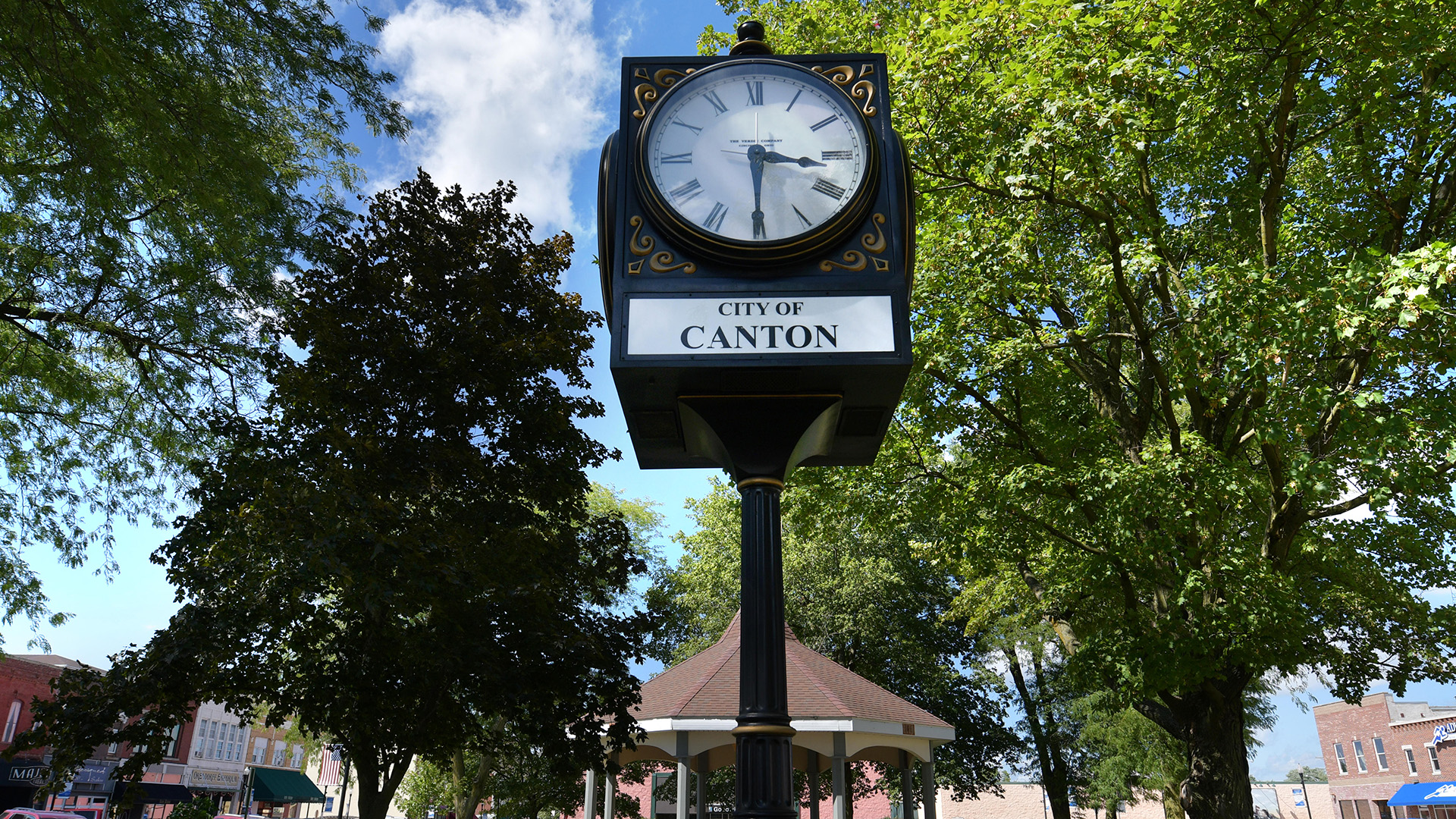Canton continues to roll with the economic punches, as it has for nearly 200 years
When asked to describe the people of Canton, Mayor Kent McDowell doesn’t hesitate.
“Canton is the epitome of resilience,” he said.
With its bicentennial approaching in 2025, this city of just over 13,000 has ridden waves of prosperity, weathered economic hardship and recovered from unforeseen adversities that might have crushed lesser towns.
“We like to say we have risen from disaster like a phoenix from the fire,” said Cheryl Bielema of the Canton Heritage Center, a repository of local historical artifacts and stories.
A Tale of Three Industries
Almost any conversation about Canton includes some reference to the closing of the landmark International Harvester factory in 1985. For more than a century, IH and its predecessor, P & O Plow, had been a regional economic powerhouse. The loss of nearly 2,500 good-paying jobs was devastating. Even after nearly 40 years, the closure and 1997 fire that destroyed the old factory are vivid and painful memories.
The city’s growth and prosperity paralleled that of its major employer. Lifetime resident and local historian Mike Walters said IH traced its Canton roots to 1849 when William Parlin opened a metalworking shop. He soon began designing and manufacturing plows that turned the soil of some of the world’s most productive farmland. Parlin’s brother-in-law, William Orendorff, joined the company in 1852.
Through innovative selling techniques and a dealer network across the Midwest, P & O Plow took off. By 1895, the company operated 11 factories as the top plow maker in America.
International Harvester in Chicago purchased P & O in 1919. For the next 65 years, a wide range of signature red IH equipment was built in Canton and sold globally.
All the while, an abundance of coal in Fulton County attracted mining companies to extract millions of tons of the sedimentary rock from below the fertile Illinois soil. This, too, created hundreds of good-paying jobs and wealth. By the 1880s, Fulton was among the top 10 coal-producing counties in Illinois, said Walters.
But the high sulfur content of Illinois coal precipitated the demise of the industry locally. By the 1980s, most of the mines were closed and abandoned. All that remained were massive gouges in the earth and a network of hidden shafts.
Companies making hand-rolled cigars flourished in Canton from about 1870 to the 1920s, employing up to 2,000 people who produced 20 million cigars annually, along with the colorful wooden boxes they were shipped in. Brands such as Armstrong, Curtis, Eyerly Bros., McCreary and Van Doren carried the “Made in Canton” label all over the nation. The rise of manufactured cigarettes led to their decline and dissolution.
An Enduring Legacy
P & O Plow may be long gone, but the immense fortunes made by its founders continue to enrich Canton to the tune of $3.1 million annually. Funds from a family trust are apportioned to the Parlin Ingersoll Library, Canton schools, Graham Hospital, Canton Park District, churches and other community organizations.
In 1930, Alice Ingersoll, daughter of P & O co-founder William Parlin, donated funds to build a gymnasium named in her honor, which remains the basketball home of the Canton High Little Giants and a venue for many community events. Jim Morrison and his then-little-known band, The Doors, played there in 1967 to mixed reviews.
‘We have been very fortunate to have Mr. Cook come in and help his hometown’
— Carla Bobell
Evidence of the fortunes created by manufacturing in Canton also can
be seen in the Ulysses G. Orendorff house on Elm Street, built in 1902 by William Orendorff’s son. The 23-room mansion exhibits influences of Frank Lloyd Wright’s Prairie School of design and is on the National Register of Historic Places.
The Cook Connection
Economic hope rose from the ashes of the IH plant in 2008 when Bill Cook, a Canton native and owner of Cook Medical in Bloomington, Indiana, committed to building a manufacturing facility in his hometown. Two plants — Cook Medical and Cook Polymer — now employ about 150 people. McDowell said the company has plans to double its Canton workforce.

Cook, Canton High School Class of 1949, would become a billionaire and the richest man in Indiana before leaving an indelible mark on his hometown, renovating several downtown structures — the Reynolds Building, the Lewis Building and Fulton Square (a former JCPenney store) among them — and building a 32-room boutique hotel, the Canton Harvester Inn.
“We have been very fortunate to have Mr. Cook come in and help his hometown out in so many ways,” said Carla Bobell, executive director of the Canton Area Chamber of Commerce. Cook passed away in 2011, but “we maintain that connection,” she said. “It’s a good relationship.”
Canton has had its share of notables. Charles Duryea, the automotive pioneer with later connections to Peoria, was born near Canton in 1861. Elizabeth Magie, inventor of the Landlord game, precursor to Monopoly, called Canton home. The late shuttle astronaut Steve Nagel was born and raised in town, graduating from Canton High in 1964. Cantonite John Keets gained global attention when he contracted HIV from a blood transfusion and became an outspoken advocate for AIDS research.
Cleaning Up, Moving On
McDowell said Cook built on “the cleanest, eastern portion” of the 31-acre former IH property. Much of the rest of the site needs environmental remediation before it can be developed. The mayor said the city has reached an agreement with Navistar, a corporate descendant of IH, to clean up the contaminants buried there, with an expected completion date in 2026.
“Developing that site would be a big feather in Canton’s cap,” McDowell said.
In the meantime, the two-term mayor has secured state funding and loans for upgrades to the city’s water and wastewater treatment plants, both built during the Great Depression. “My goal is to leave things better than I found them,” he said.
Transportation is another priority. Fulton is one of the few Illinois counties that does not have direct access to a four-lane highway. Plans are in place to extend a four-lane section of Illinois Route 9/U.S. Route 24 from Mapleton to Banner.
“It’s a beginning,” McDowell said. “We’re taking baby steps.”
At the Center of It All
“We love our downtown,” Bobell said. “It’s kind of the heart of the community.”
Canton’s square surrounds Jones Park, featuring a gazebo and entertainment stage, World War I memorial and multi-faced millennium clock.
Established in 1830, Jones Park plays host to the annual Canton Cruise-In every June, the Art on Main Fine Arts Festival and a weekly Farmers Market from June to September. In October, Canton is a highlight of the Spoon River Scenic Drive.
City Hall anchors one corner of the square, with women’s clothing boutiques, gift shops, restaurants and pubs, a furniture store, florist, first-run movie theater, Goodwill store, fitness center, the Canton Chamber of Commerce and other establishments behind historic facades and modern storefronts. The mayor is actively courting a men’s clothing and shoe store.
Down Chestnut Street are four murals commissioned by Bill and Gayle Cook depicting historic downtown scenes of the 1900s. Scott and Tracy Snowman of Snowman Studios and Reindeer Farm created the murals in 2010. A nearby stone marker recognizes Isaac Swan, the city’s founder. A grassy gap on the east side of the square is where a 2016 gas explosion killed a utility worker, injured 12 and destroyed the historic Canton Opera House. The square was also ravaged by a tornado that ripped through town in 1975.
Alice Herrick runs the Sweet Shoppe at 8 S. Main St., which until 2009 was the pharmacy of Ed Lewis, Jr. Herrick offers handmade candy and sweets, gifts, baked goods, homemade ice cream and old-fashioned fountain drinks in a rainbow of flavors.


One block off the square at 23 W. Pine St., Phil Iverson and his wife, Jackie, recently had a “soft opening” for their Old Dog Brewery, Winery, Distillery and Eatery. The first establishment of its kind in Canton features a dining room and bar, with phase two plans for a large beer hall, brewhouse and distillery accommodating up to 150 guests. The Iversons anticipate being fully open in November.

The Canton Main Street nonprofit is committed to making the downtown vibrant again. “There’s no easy way to get here, but it’s worth the drive,” said Bobell.
A Diverse Economic Future
Spoon River College offers vocational training and two-year degree and transfer programs to more than 1,900 students. Graham Health System provides medical services at a Canton hospital and clinics throughout western Illinois. And the Illinois River Correctional Center opened in 1989 with an operational capacity of 2,000 medium-security inmates.
Meanwhile, a satellite view of Canton reveals hundreds of lakes, remnants of the region’s mining legacy. Once an environmental scourge, many of these lakes have been transformed into regional destinations for fishing, boating, hunting, camping and outdoor living.
Giant Goose Ranch west of town is a privately owned resort offering 840 acres of outdoor recreation and living. The century-old Canton Park District maintains 1,400 acres plus of open space in nine parks. Ingersoll Airport also is operated by the park district.
City-owned Lake Canton features fishing, boating, kayaking, rental cabins, camping and hiking. For golfers, Wee-Ma-Tuk Hills Country Club beckons with its picturesque lakes, waterfalls and clubhouse on property that was formerly a large mining operation.
“We have a very proud history,” Walters said. “We’ve had our problems, but we always fight back.”
The very definition of resilient.
Explore Canton
City of Canton:
www.cantonillinois.org
Canton Heritage Center:
www.cantonillinois.org/heritage-center
Canton Chamber of Commerce: www.cantonillinois.org/chamber





